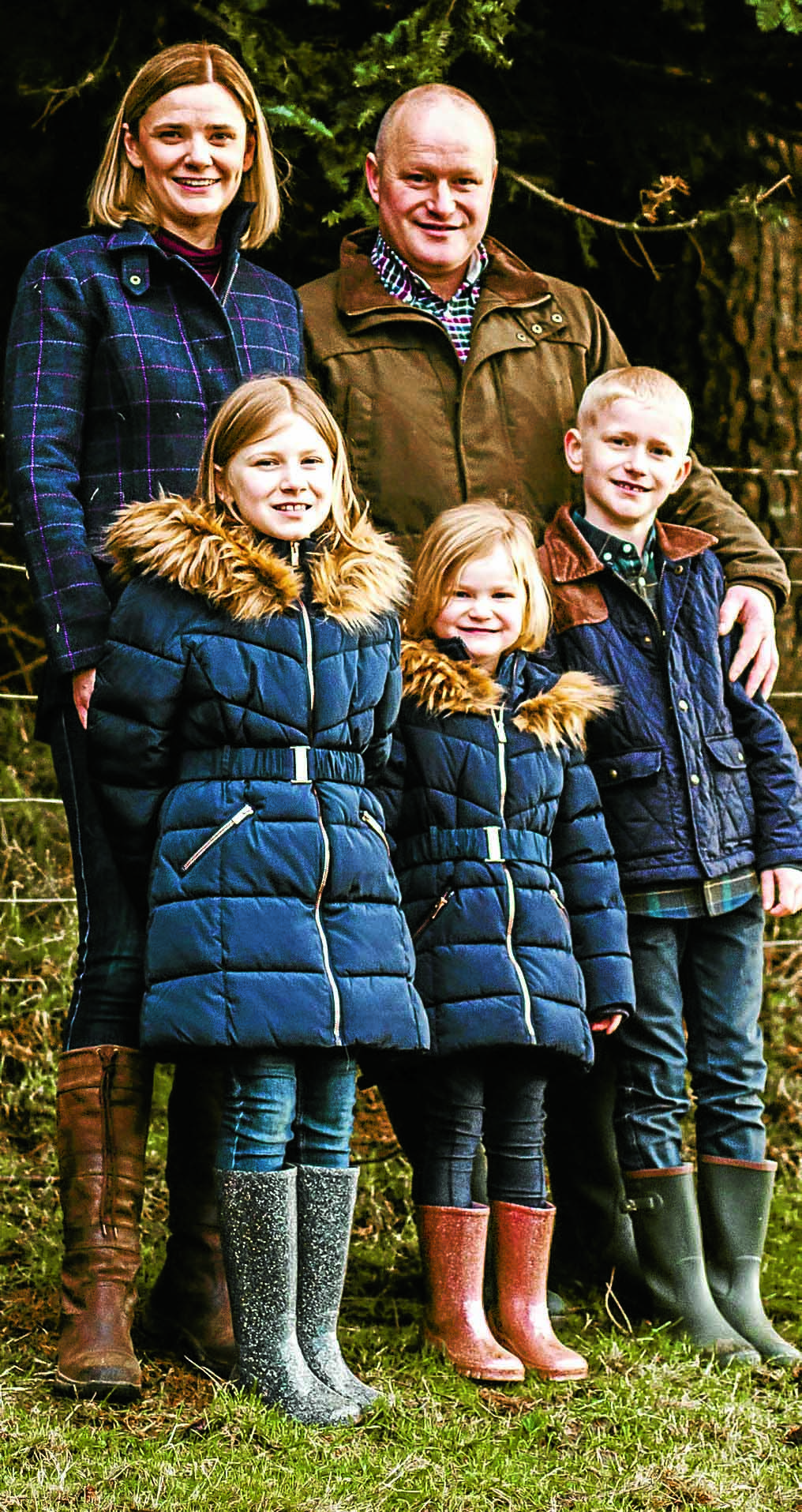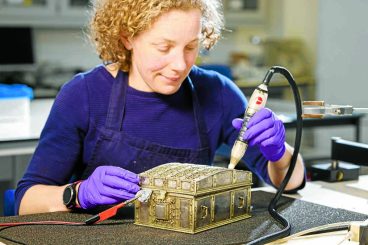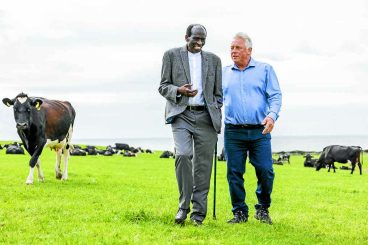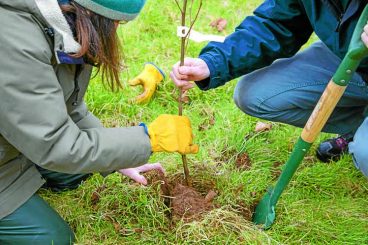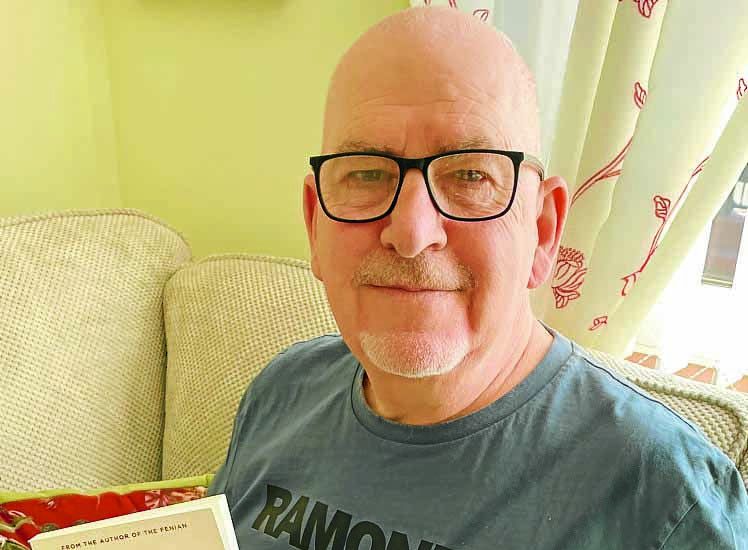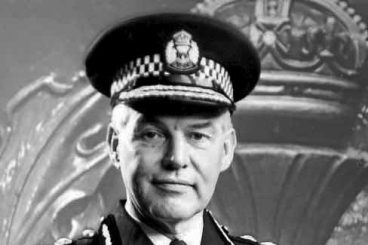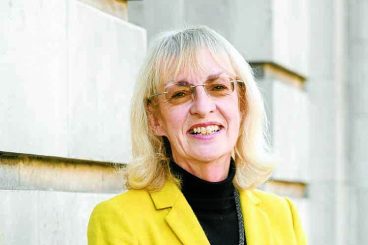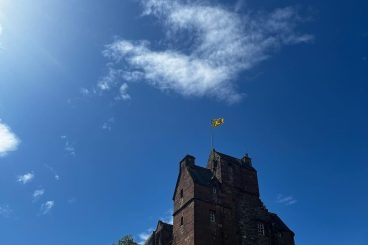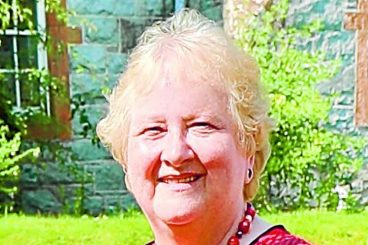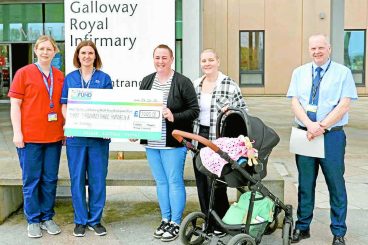One of those was Alisdair Davidson, who was just 19 and working with his dad Willie and mum Jennifer at Poldean Farm near Moffat.
The Davidsons, who came to the farm in 1969, farmed a mixture of over 2000 sheep and beef, some of which were pedigree and had bloodlines built up over the previous decade.
In 2001 Alisdair kept a diary of life on the farm and this week he and his wife, Emma, have looked back on that time.
Day-to-day life changed for the Davidsons on Wednesday February 28, and Alisdair’s diary entry for that day described how they placed carpets soaked in disinfectant down at the road end, a sight that would become a common occurrence across the region and in the news.
And he said: “We battened down the hatches as we watched foot and mouth get closer on the news.
“Young Farmers, and socialising, was a big part of my life at that stage and it all came to a halt.”
Then, on Sunday March 11, after almost two weeks of lockdown on the farm, Alisdair’s worst fears were confirmed.
His diary for that date contains one loaded sentence, ten heartbreaking words: “127 slevering – I think I know it’s foot and mouth.”
And he explained: “I still remember our Hereford cross number 127 – she was always the greedy first cow through the gate but on this day she was the last.
“She was slevering. I remember phoning Dad and I think I knew it was foot and mouth at this point.”
The following day the family received the confirmation they needed but also dreaded.
The cow had foot and mouth, and all the other animals on the farm faced certain death.
But there was no more watching and waiting, worrying ‘if’ the highly contagious disease would reach them.
Those tasked with handling foot and mouth disease in Dumfries and Galloway swung into action.
His diary entry for March 12 included ‘foot and mouth confirmed’ and Alisdair recalled: “I remember things happening very fast.
“The place was a hive of activity with ministry vets, lorries arriving with sleepers and coal etc.
“A bit of a blur in some ways. Maybe that’s a good thing.
“I remember how brutal it was – years of hard work and breeding shot where they stood in their pens. I remember working through the night, culling to get through everything.”
The family had 483 cattle and 1612 sheep culled.
Many of their Salers cattle were pure pedigrees and the bloodlines had been built up over the previous ten years.
Alisdair commented: “We showed both our cattle and sheep and so to lose all of this was heartbreaking.
“You can never get that breeding back – that was it gone.”
And the years of blood, sweat and tears which had gone into raising those prime animals went up in smoke right before their eyes.
Alisdair said: “I remember the burning for days right in front of the house. A constant reminder and the smell was awful.
“You can actually still see the two scars in the field today from the fires, it’s a vivid reminder.
“Despite the field having been ploughed twice since – the marks still shows through.”
With their farm decimated early in the outbreak, Alisdair turned his hand to helping where he could, and said: “After being culled out I went to work on one of the cull teams but only lasted a few weeks – it certainly wasn’t one of the most pleasant experiences.”
In the farming calendar, March is one of the busiest times as the weather begins to improve and new life is welcomed into the fields.
Alisdair commented: “It was the weirdest feeling to have no lambing and calving that year.
“A time when new life should have been all over the farm and there was nothing.
“I’d never really taken time off before so to have free time and no real purpose was so strange.
“It was a very depressing time, but we took the time for something positive to come out of it all and spent the time doing jobs that we never normally had the time to do.”
Over the summer, life on the farm moved at a much slower pace than normal.
As they had no stock to eat the grass, Alisdair put his energies into improving the land for when they did get cows and sheep back on their pasture by topping fields to stay on top of the summer growth.
In September 2001, it was time for the next chapter in life at Poldean – animals were coming back.
Alisdair explained: “We bought from local farms, and also my mum and dad travelled to France to buy in Salers genetics to try and replace the ones we had lost.”
Over the next 20 years, the Davidson family would put their efforts into bringing stock from Poldean back to the level it was prior to foot and mouth disease, and Alisdair commented: “I still don’t think the herd we have today is as good as the one we had prior to foot and mouth.”
In 2008, the family took on neighbouring Cogries Farm when Alisdair married Emma.
The business was set over the two units and covered almost 2000 acres.
Alisdair and Emma have built on the business created by the late Willie and Jennifer and in 2017 took on full management of Poldean and have spent a lot of time future-proofing the business.
Along with their three children, Lucy, Rory and Abbie, Alisdair and Emma currently have 500 sheep and 350 breeding Salers cows. In 2018 the Davidsons were finalists in Scotch Beef Farm of the Year
Last year they moved away from intensive farming and focussed on getting the most out of grass and using it all year round.
They took part in Quality Meat Scotland’s Better Grazing Group and were a pilot farm for the GrassCheck GB Programme, which monitors grass quality and growth in order to predict future growth.
The benefits have been improved efficiency and increasing stock levels, while keeping the cost of feed low.
Unsurprisingly foot and mouth disease has affected Alisdair’s outlook on the farming industry and he is doing what he can to prevent a similar situation ever happening again.
He said: “Today, after having gone through foot and mouth, it has made me a lot more biosecurity aware – it was never something we really thought about before.
“A little extra effort to keep disease out is more than worth it when you see the effects some diseases can have on your animals.”





